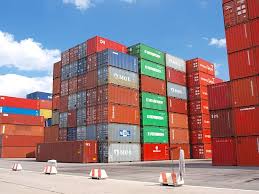|
Sharing an SME’s perspective on cross-border trade as the Trump Administration’s trade team begins their work over the next four years. It is my pleasure to work with US small- and medium-sized enterprises (SMEs) and US multinational corporations (MNCs) that support American jobs through exports. These savvy business men and women recognize that growth opportunities arise with sales to customers outside the United States, and work hard to develop and market high quality US products and services for overseas markets A recent Gallup poll indicates there is a sense of optimism from SMEs with the incoming Administration related to domestic tax, healthcare and regulatory reforms. However, when it comes to cross-border trade policies, I share the view that “growth-sapping” policies will move the US backward and inward to the disadvantage of many US SME exporters.
As a small business owner, I am concerned that protectionism in the US market will have the unintended effect of undermining US export growth. If the United States walks away from existing trade deals like NAFTA, or imposes new tariffs and border taxes on imports from our trading partners around the world, we can expect to see greater input costs for US manufacturers of all sizes; higher prices for US consumers; retaliatory counter-actions by our trading partners to increase tariffs and other barriers to US products and services; and deflection of limited US resources dedicated instead to defending protectionist, isolationist policies rather than opening borders for US goods. As the United States continues its efforts to recover from the recent recession, we need thoughtful trade policies that help the United States be nimble in global markets, help companies grow, and contribute to a stronger, more vibrant US economy. Free trade agreements (FTAs) have been a valuable resource in SME exporters’ tool box for accessing and competing in foreign markets. As SMEs have limited capacity to invest behind border barriers like MNCs routinely do, they must rely on market-opening initiatives and open-trade policies in order to level the playing field outside the United States. On behalf of US SME exporters, I urge the new Administration to forego its aim to dismantle NAFTA which has benefitted US MNCs and SME exporters alike and has contributed to an integrated supply chain for companies of all sizes throughout the United States. For many SMEs, NAFTA is the first FTA they take advantage of as they begin exploring foreign sales. In recent weeks, we have heard from US companies that have undertaken assessments on the potential loss of NAFTA tariff benefits for US exports and the resulting negative impact to their bottom line. In addition, US exporters have voiced concern that lower-cost goods from other countries will replace US exports into NAFTA markets leading to loss of market share. As we saw in the 1930s with Smoot-Hawley tariffs, closing open trading routes and increasing costs for US manufacturers and exporters will not help America grow. Rather, maintaining NAFTA and similar agreements is an important step to build on America’s economic growth, as is entertaining a new perspective on the concluded, but not yet implemented Trans-Pacific Partnership (TPP) as a strategic endeavor to get a strong foothold in Asia, open the Japanese market, and compete with China in its own backyard. The TPP has, for the first time in a US trade agreement, included provisions specifically to address SME trade facilitation. Finally, it is important to re-visit the US-EU Trans-Atlantic Trade and Investment Partnership (T-TIP) negotiations and continue to explore opportunities for SME exporters to make in-roads to remove tariff and non-tariff barriers in the European Union. News of some US MNCs re-thinking their investment plans, keeping jobs in the United States, and expanding facilities here has been well-received. US workers will benefit, and it is expected these US facilities will contribute to US export growth. However, over the next four years, the new Administration should ensure it does not focus too heavily on MNCs and inadvertently overlook the importance of SME exporters. Going forward, I recommend the incoming trade team seek input from US SME exporters on priorities in overseas markets and ways to improve access for US goods and services. Nearly sixty US District Export Councils throughout the United States with over 1,500 experienced SME exporters provide expertise to assist small and medium-sized businesses in their local communities establish or increase export sales. In addition, the Department of Commerce’s Industry Trade Advisory Committee for Small and Minority Business (ITAC 11) is comprised of US SME exporters from a variety of sectors and from around the country which provides advice to Commerce and the US Trade Representative’s office on trade policy and export promotion priorities for US SME exporters. These seasoned SME exporters that rely on free trade agreements to open markets, and diligence from the US government to remove barriers to US goods can provide keen insight from the trading trenches and wise counsel to the new Administration on what works to facilitate trade. As the Trump Administration takes office today, let’s not look backwards, close markets, or isolate the United States from the rest of the world. Instead, let’s keep America great for US SME exporters by working to keep important markets open, implementing trade deals that provide new opportunities for US goods and services, tackling new trade negotiations, and dedicating resources to smart cross-border trade initiatives. Shawn Marie Jarosz [email protected] Check out TradeMoves’ website and read our blog at www.trademoves.net. Find us on LinkedIn. Follow us on Twitter @TradeMoves and @ShawnJarosz Comments are closed.
|
|





